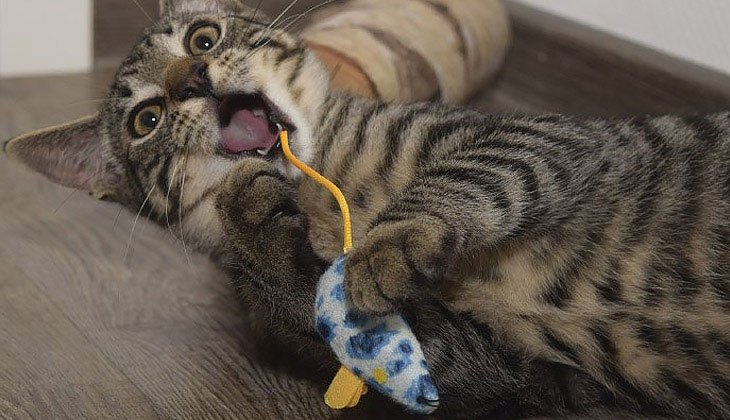
How To Train a Cat
BEHAVIOUR & TRAVEL
5 May, 2019
READ 3 minutes
The domestic felines are often misjudged and misunderstood as being stubborn, unreliable and untrainable. Of all these misconceptions, let’s focus on the myth that it is impossible to train a cat.
Is it possible to train a cat? Definitely yes. Without a doubt, it is possible. In fact, many cats walk along the street with their owners, they relieve themselves in toilets and will accept orders of all kinds. Therefore: It is possible to train a cat.
We must keep in mind the feline psychology: a cat is not a puppy, dog, nor a small child, or anything like that.
To train a feline in the routines that we create, we must appeal to the feline behaviors, mindset and habits.

Before starting, we must be very clear about what we intend to achieve: strolls with a collar, avoiding certain behaviors etc. A cat can play dead after a shot with our finger, they can bring us things, obey commands such as sitting. But we should think: What do we want our cat to do? The main thing when training cats is to know what we want to achieve, why and for what. With this understanding, we will avoid wasting time and patience.
It is essential to have a “student” with a balanced behavior: who has spent enough time with their mother and siblings (two months minimum), who is socialised with people and, of course, with the environment. Training will be much more complicated and challenging when working with animals that have not enjoyed the relevant guidelines described. But, although more complicated, it is not impossible.
Before teaching your cat to use a scratching post instead of the furniture, you must first teach him what to do upon arrival such as proper use of the litter tray, location of food and water and where the his new playground is if you have a cat gym.
Unlike the dog, a cat does not learn after accepting what the human proposes: a cat learns because it interests him, it’s that simple.
If the cat does not find our proposed idea exciting or adequate, it will never do what we want. He must be interested in what we intend to teach, be awake, rewarded and not overwhelmed with excessive repetitions.
The cat learns better with rewards since punishments produce little to no positive impact. The cat must be interested in learning; if he is not and we use punishment when trying to train him, we will never achieve the training objective. However, if we make the classes more visually interesting and decorate them with the most engaging rewards and hugs, we will learn that their training motives are linked to the rewards and compliments versus reprimands of any kind.
In the case of unwanted behavior (stealing food, marking with urine, filing / marking nails on the sofa) you can reprimand, but do so indirectly (loud noise), to prevent the animal from associating the punishment with the human. If the animal associates the punishment with you, it will only learn to perform this unwanted behavior when you are not present.
To teach dog like tricks such as “sit” or come towards us, you will need patience, short words, repetition and reward (food or caresses) their obedience. However, let’s not kid ourselves: it’s a cat.
RECOMMENDED




